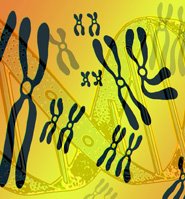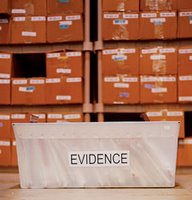
The other day, the Supreme Court
dismissed a case I’ve been watching closely, which could have set some limits on how far patenting of genes and other bodily products will go in the future.
Several years ago, a company now called Metabolite patented the fact that an increased level of the amino acid homocysteine in your blood means you have a deficiency of certain B vitamins. So they own that diagnosis. Technically, if you test for, treat, research, write about or (in theory) even think about this disorder without paying a (steep) licensing fee to Metabolite, you're guilty of patent infringement (which I'm now guilty of for writing this).
Metabolite enforces their patent aggressively: A company called LabCorp developed a test for this deficiency and began offering it to doctors. So Metabolite sued them (in
LabCorp v. Metabolite Laboratories) and won $7.8 million. LabCorp appealed right up to the Supreme Court, and quickly had scientists, patient advocacy groups, lawyers and ethicists fighting on their behalf with
a flood of briefs. Their argument: Naturally occurring phenomena aren’t patentable; the relationship between homocysteine and B vitamins is as much a natural phenomena as gravity, therefore the patent should be invalidated. Sounds like a no-brainer. But it’s not, because there’s too much at stake.
For LabCorp, this is clearly about money – they don’t want to pay the $7.8 million, and they want to offer the test without paying future royalties. But for many others who wrote court briefs, this was their first big shot at limiting body-related patents – patents on diagnoses, proteins, even genes. Historically speaking, they had good reason to think they might win: Nearly a decade ago,
patents on surgical procedures were common and strictly enforced, which meant if you went to the hospital with, say, a certain type of appendicitis and your doctor hadn't licensed the surgical procedure to fix it, he couldn't operate without risking a lawsuit. The practice of restrictive surgical patents stopped in the 90s because of
a lawsuit similar to LabCorp v. Metabolite, where a court ruled that doctors weren't required to license surgical patents for treating patients.
The implications of LabCorp v. Metabolite could have been huge: If the court invalidated the patent, it would have called thousands of patents on medical tests and genes (worth potential billions) into question, because if a diagnosis gets ruled a natural phenomena, genes couldn't be far behind.
The court's
only comment on dismissing the case was to say it shouldn’t have agreed to hear it in the first place. Which is odd. Three justices dissented, saying the court should decide the case because biotechnology patents (and similar patents in other businesses) are being granted too liberally and should be rolled back. They also said they would have invalidated the Metabolite patent.
Dismissing the case, the dissenting judges said, "threatens to leave the medical profession subject to the restrictions imposed by this individual patent and others of its kind," which could "raise the cost of health care while inhibiting its effective delivery."
Given my
obsession with tissue research and consent issues, I can't help but point out that research participants probably had no idea this might happen: Hundreds of people donated the samples used to uncover this connection between homosysteine and B vitamins. Many gave spinal fluid samples (an invasive, painful procedure that isn't without risk), because they wanted to help people with this disorder get treatment. Their consent forms, like most, surely didn't say that Metabolite could use their samples to file for a patent that could actually restrict research and treatment for the disorder they were trying to help.
Labels: Bioethics: Use of Human Tissues, My Book, Science and Money
 For those who are into this sort of thing (like me), here's some interesting news: This Thursday, July 27th, there's going to be a Senate hearing on the lack of oversight of genetic testing. It comes at the end of a year-long investigation into the safety and reliability of genetic tests offered to consumers via the Internet. The hearing is called: “At Home DNA Tests: Marketing Scam or Medical Breakthrough?” It will be at 10 a.m., July 27, in 106 Dirksen Senate Office Building. I encourage all to go (especially you journalists out there -- this is a great story I'd be all over if I weren't on a writing retreat in the middle of nowhere).
For those who are into this sort of thing (like me), here's some interesting news: This Thursday, July 27th, there's going to be a Senate hearing on the lack of oversight of genetic testing. It comes at the end of a year-long investigation into the safety and reliability of genetic tests offered to consumers via the Internet. The hearing is called: “At Home DNA Tests: Marketing Scam or Medical Breakthrough?” It will be at 10 a.m., July 27, in 106 Dirksen Senate Office Building. I encourage all to go (especially you journalists out there -- this is a great story I'd be all over if I weren't on a writing retreat in the middle of nowhere).





